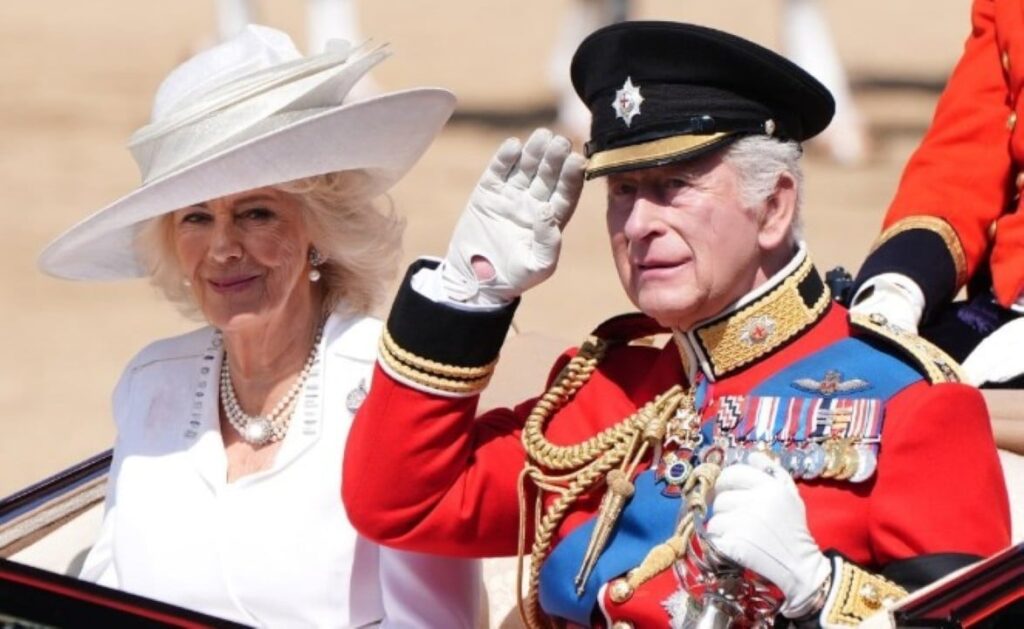
In July 2025, King Charles III mandated that Prince George, second in line to the British throne, no longer travel on the same aircraft as his parents, Prince William and Princess Kate Middleton. The rule, applied since the young prince turned 12, aims to safeguard the monarchy’s continuity in case of air accidents. This historic royal protocol, previously followed by William at the same age, underscores concerns about the stability of the line of succession. However, the decision has sparked debate, as the royal couple seeks to balance tradition with a closer family lifestyle. The requirement highlights the rigidity of monarchical norms, even amid modern resistance.
The mandate from Charles III is not new, but its application to Prince George, who turned 12 on July 22, 2025, has reignited discussions about royal customs. The protocol was established to prevent direct heirs, like George, from being at risk simultaneously. The British monarchy, with centuries of tradition, prioritizes preserving the royal lineage, especially under growing public scrutiny.
The measure reflects the tension between tradition and modernity in the royal family, with the king upholding strict norms while the couple pushes for a more family-oriented approach.
The protocol preventing direct heirs from traveling together dates back decades in monarchical practice. Designed to minimize risks to the succession, it gained prominence after historical incidents involving the royals. The rule stipulates that, from age 12, the heir must travel on a separate aircraft from other direct heirs. For George, second in line after William, the requirement took effect immediately after his birthday.
The British monarchy has always prioritized protecting its continuity. The rule accounts for extreme scenarios, like air accidents, that could jeopardize multiple heirs. When William reached the same age in 1994, he also began traveling separately from his father, then Prince Charles. Though strict, the protocol is seen as essential to avoid succession crises.
Despite its logic, the protocol faces criticism for limiting family closeness, especially in an era where the monarchy seeks to appear more relatable.
William and Kate, known for prioritizing close parenting, have expressed resistance to the rule. Sources close to the couple indicate they prefer keeping the family together during trips, valuing shared moments with George, Charlotte, and Louis. Their attempt to relax the protocol reflects a desire to modernize the monarchy, aligning it with contemporary family values.
The couple’s reluctance has sparked internal debates. Charles III, described as a staunch defender of tradition, reportedly reprimanded William for questioning the rule. The tension highlights the conflict between royal duties and the couple’s personal aspirations to maintain a close-knit family routine.
The couple’s stance is also shaped by their public image. Since their 2011 marriage, they have cultivated a reputation for accessibility, engaging in family-oriented events and sharing moments with the public. The protocol’s separation may be seen as a barrier to this narrative.
At 12, Prince George is already taking on prominent roles in the monarchy. His participation as a page at Charles III’s coronation in 2023 marked his entry into official duties. The travel rule, however, adds a new layer of responsibility, reinforcing his role as a future king.
The flight separation requires significant logistical adjustments. George must travel with a security team and aides, increasing costs and complexity for royal trips. Additionally, the measure may affect family dynamics, as the young prince will spend less time with his parents during international travel.
This transition marks a milestone in the young prince’s life, as he begins to grasp the demands of his future role.
The protocol’s enforcement reflects a broader clash within the British monarchy. Charles III, as king, seeks to preserve traditions that ensure the institution’s stability. His approach contrasts with William and Kate’s vision of a monarchy closer to the public and adapted to modern times.
The travel rule, though practical, symbolizes the challenges of modernizing a centuries-old institution. Public opinion in the UK closely follows these decisions, with debates over the relevance of outdated norms in a globalized world. While some support the rigidity as necessary, others view William and Kate’s resistance as a step toward renewal.
The debate over the protocol is likely to persist, especially as George nears adulthood and takes on more royal responsibilities.
Prince George, as second in line to the throne, holds a unique position. His education and upbringing are carefully planned to prepare him for the crown. The travel rule is just one of many norms he will face throughout his life. From an early age, he has participated in official events, such as his grandfather’s coronation, and is guided on the duties of a future king.
Despite its traditions, the British monarchy faces pressure to evolve. The popularity of William and Kate, combined with their children’s charismatic image, is seen as a strength for maintaining the institution’s relevance. However, decisions like Charles III’s reinforce that tradition still plays a central role.
The protocol’s application to George serves as a reminder that, despite changes, the British monarchy remains rooted in its historical foundations.
Chapecoense e Paysandu se enfrentam neste domingo, 17 de agosto de 2025, às 16h (horário…
Botafogo e Palmeiras entram em campo neste domingo, 17 de agosto de 2025, às 20h30…
Botafogo e Palmeiras se enfrentam neste domingo, 17 de agosto de 2025, às 20h30 (horário…
Igor Jesus, ex-atacante do Botafogo, marcou sua estreia na Premier League com uma vitória convincente…
Renowned British actor Terence Stamp, celebrated for his iconic role as General Zod in Superman…
A jovem promessa do Flamengo, Matheus Gonçalves, vive um momento de incerteza no mercado da…